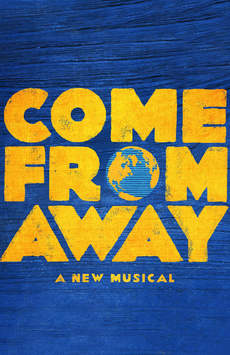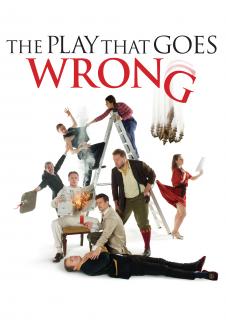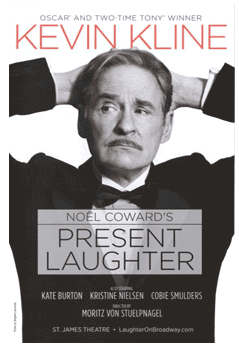


I spent the weekend celebrating my mother’s 93rd birthday with her, and my wife and daughter in New York City. While there, we took in three Broadway shows of different genres: a feel-good musical about 9/11, a farce where everything goes wrong, and a Noel Coward play starring Kevin Kline.
The best of the three was “Come From Away,” which was nominated for (but didn’t win) the Tony for Best Musical. It’s about the little Canadian town of Gander, Newfoundland, where the population nearly doubled for a few days because of the 9/11 attacks. That day, when US airspace was closed, 38 planes were diverted to the Gander airport, where the locals opened their homes, schools, and businesses to help out the 7,000 stranded passengers and crew. The musical uses some of the real names and stories of those who were there.
“Come From Away” has a cast of 12 who play both the Gander locals and the plane people, telling their stories and experiences in song — a score that’s performed live by a band of six terrific musicians who are off to the sides of the stage. As the actors (many of whom have been with the show since its first run in La Jolla in 2015) switch between dozens of roles, the chemistry never suffers, and the characters come to life: the town mayor, an American Airlines pilot, a teacher, a gay couple, a cop, an SPCA worker, a Muslim man who is eyed warily, and many others.
The music is vibrant, the tales are gripping, the performances are so good that we joined the rest of the audience in leaping to our feet for the curtain calls (including a several-minute-long jam session by the band, which takes center stage for the finale). “Come From Away,” which Ben Brantley called a “portrait of heroic hospitality,” is the best musical I’ve seen since “Fun Home.” This is a show that will not only have a long run on Broadway, but will no doubt be performed by road companies, regional theaters, and even high school/college drama departments for a long time to come.
Our second show was “The Play That Goes Wrong,” an out-and-out farce. The show’s basic conceit is that an amateur theater company is putting on a classic British mystery, “The Murder At Haversham Manor.” In the tradition of such shows as “What The Butler Saw” and “Noises Off,” “The Play That Goes Wrong” thrives on what my wife describes as The Three S’s That Make A Farce Work — slapstick, spit-takes, and slamming. Over the course of the play, the set falls apart, props are misplaced, actors forget their lines, the tech crew misses cues, and the corpse crawls off the stage only to return later.
“The Play That Goes Wrong” was written by Henry Lewis, Jonathan Sayer, and Henry Shields of Mischief Theatre Company, a group that reminds me of The Reduced Shakespeare Company, in that they have also written and performed similarly farcical prodcutions (e.g. “Peter Pan Goes Wrong,” “The Nativity Goes Wrong,” and “The Comedy About A Bank Robbery”). A show like this demands perfect timing, both verbal and physical, which the cast pulls off brilliantly. It helps that most of them have been with the production since it first appeared in London in 2014.
Finally, we saw Kevin Kline in his Tony-winning performance in “Present Laughter,” a 1939 Noel Coward play (in which Coward originally played the lead). It is a drawing-room comedy, also British, but without any slapstick or spit-takes. This time, the comedy comes from the spoken word and the interaction between stage star Garry Essendine (Kline), his domestic staff, his long-suffering secretary, his business partners, his ex-wife, and his young ingenue lover.
Kline is onstage for the vast majority of the play, and gives a riveting performance in which every line reading and movement is just right for the character. He’s so confident up there that he doesn’t even mind turning his back on the audience a few times to allow the focus of attention to drift to his co-stars. Among them, the always-solid Kate Burton is best as his ex-wife. Interestingly, she played the ingenue in a 1982 production of the show, but now is the separated-but-not-completely Mrs. Essendine. Meanwhile, the young woman cast as the ingenue this time (Tedra Millan in her Broadway debut) looks strikingly similar to a young Phoebe Cates, who grew up to become Mrs. Kevin Kline. That brings a tinge of oddness to their scenes together.
So, three shows, three successes, and a great family celebration with Mom — that’s a pretty good weekend.
